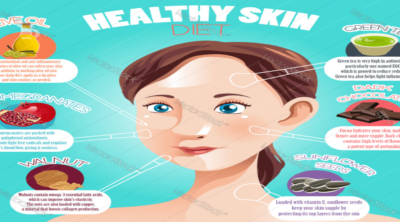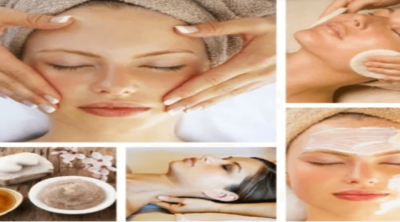
Bearberry extract is considered to be a natural skin lightening treatment that can work wonders to erase age spots and sunburn marks. This following BeautiSecrets article discusses more about the benefits of bearberry extract for skin.
Did You Know?
Topical bearberry extract products should be applied only on problem areas of the skin. This is because the extract that acts as a skin lightening agent can cause hypopigmentation in healthy areas of the skin, leading to uneven skin tone.
Regarded as a skin-friendly ingredient, bearberry extract is added in a variety of skin care products. Formulated from the leaves of the bearberry plant, the extract is found to be extremely useful in treating skin discoloration. There are different species of bearberry plant, but the one that is used for its skin benefits is known as Arctostaphylos uva-ursi. The extract of this plant is well-known for its skin whitening effect, which can help get rid of hyperpigmentation. Its purported benefits are discussed below.
Natural Skin Lightener
Dealing with hyperpigmented skin is not easy if you are not using the right products. Lightening agents that contain natural ingredients like bearberry extract can help get rid of excess pigmentation on the skin that often manifests in the form of dark spots.
Arbutin, a glycoside present in bearberry, is a natural skin lightener. It inhibits the production of melanin―the pigment responsible for darkening the skin. Arbutin negates the actions of tyrosinase, the enzyme involved in melanin synthesis, which works to lighten dark areas. In short, the inhibitory effect on tyrosinase induced by bearberry extract, causes reduction of melanin, which works in reducing discoloration. No wonder, arbutin due to its ability to suppress tyrosinase, is often added in various facial skin lightening agents.
Freckles that are nothing but clusters of pigmented spots, may also fade away by applying bearberry extract. So hyperpigmentation, be it age-related or resulting from sun damage, is sure to resolve with the regular use of bearberry extract.
Reduces Melasma
Skin conditions, like melasma, that lead to dark brown pigmentation on facial skin may also improve with bearberry extract. People often complain that stubborn pigmentation associated with melasma is not easy to treat, but with daily use of bearberry extract, the problem areas can lighten considerably.
Displays Antioxidant Properties
Bearberry is also high in antioxidants, hence applying its extract can help combat free radical damage. This in turn can help prevent and even treat formation of wrinkles. The antioxidant activity of bearberry extract is found to be higher than reported in other herbal plants such as wild licorice and senega. So, bearberry extract with its anti-aging benefits can contribute in reducing those visible signs of aging.
How to Use Bearberry Extract?
Bearberry extract available in liquid formulation (serum) is highly concentrated, and so, should never be applied directly on the skin. Just mix a small amount of the extract in your everyday cream before application. Place a small amount of cream on your palm and then spike it with a few drops of the extract, before massaging it on the affected area. Usually 5-10 drops of the extract are combined with every ounce of cream. Follow this skin care routine daily, and within a few weeks, you are sure to notice a substantial improvement in your skin tone.
Bearberry extract gel cream that also contains other ingredients like vitamin B3 and goji berry extract, can also help reduce hyperpigmentation, fine lines, and inflammation. When used as directed, they can be helpful in restoring the natural texture of the skin.
On the whole, bearberry extract is an effective skin lightening agent. So, if you feel that your skin has become pretty dull from sun damage, age spots, or conditions like melasma, it’s time you use topical bearberry products to brighten up your skin and enjoy an attractive complexion.
Disclaimer: The information provided in this article is solely for educating the reader. It is not intended to be a substitute for the advice of a dermatologist.


